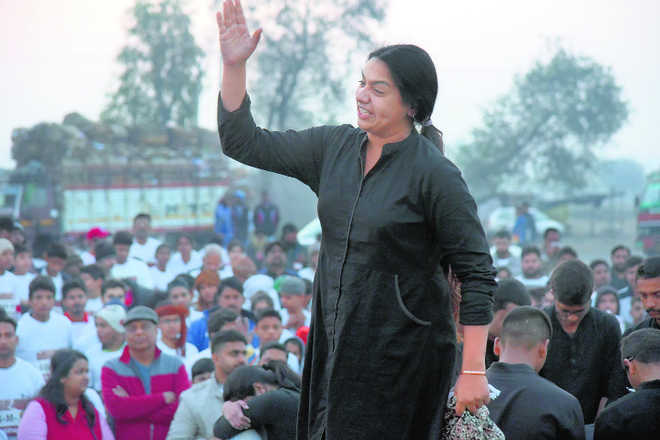A brave new narrative
Neha Kirpal
A year before #MeToo wave swept India, a known name from Delhi’s theatre circuit, Shilpi Marwaha, had raised a finger at top theatre director Arvind Gaur. Named and shamed for denying his alleged “advances”, she left the group 11 years after she had joined it. She used the opportunity to start her own theatre group. She named it Sukhmanch.
“I faced a lot of shaming after speaking out about the incident. I had worked hard at Asmita and had all the authority at the time I left. Quitting was a big step. I had to start from the scratch for no fault of mine. However, it is important for women to speak out about such things instead of feeling that they are being judged.”
Now, as the creative head of Sukhmanch, Shilpi continues to work on socio-political themes as before. The group organises a summer festival and a winter festival of four months’ duration each. Some of the notable plays she has directed and written under the Sukhmanch banner include Lakdi Ki Kathi, Kasturba Vs Gandhi, Purity and Ramleela.
Shilpi first came into the limelight with her activism through street theatre during the anti-corruption movement in Delhi and the protests at Rashtrapati Bhawan after the Nirbhaya rape. Till date, Shilpi has acted in more than 40 street plays based on relevant social themes such as women empowerment, slut shaming, child abuse, road safety and communal harmony. As a theatreperson, she feels she has a responsibility towards society and uses this strong medium to educate people and make them aware about critical and sensitive issues. Some of the plays she has written, adapted and directed have been based on controversial themes such as violence against women (Dastak), LGBTQ issues (Pehchan), marital rape (Woman Alone), inter-caste love (Kaash) and lesbianism (Ehsaas).
Talking about the scope of this unique art form, she says, “Street theatre reaches where no one goes. It can be performed in a temple, a terrace, a lobby, an office or home. While stage performances may still be expensive for a common man, all you need for street theatre is some time at hand.” Also, she says that the feedback that one receives in street theatre is instant and direct. That enables the actors to immediately incorporate it and make the necessary amends for the next performance.
Point to her that street theatre lacks finesse, and Shilpi disagrees. “Street theatre in India has evolved considerably over the last few years with audiences becoming receptive and accepting the medium with more and more understanding,” she says.
Apart from theatre, Shilpi also acts in films from time to time. In the past, she has worked with Oscar award-winning director Ross Kauffman. Her latest film Widow of Silence has been selected for the International Film Festival, Rotterdam 2019. Talking about her experience of being a part of the film, she says, “The shooting took place in the Drass region of Kashmir in extreme cold, and so it had some very difficult scenes. I was the only trained actor in the cast. The rest were local Kashmiri people. This lends the film its originality.”









